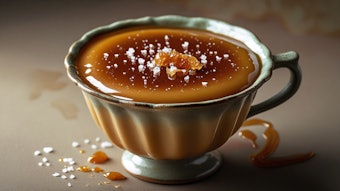Citrus oils, like most oils, are very complex mixtures containing aliphatic, mono- and sesquiterpenoid compounds belonging to different chemical classes (hydrocarbons, esters, alcohols, carbonyl compounds, etc.) with widely varying distribution. The volatile fraction of citrus oils, with more than 100 components, normally represents 94-98% of the total oil. Most of these compounds are present in low levels.
Several studies to quantitatively determine the composition of mandarin oil have been done. In these studies, the variation of results is wider than with any of the four major citrus oils (orange, lemon, grapefruit and lime). As such, with respect to mandarin oils, the interpretation of results must be based on the source of each particular oil. The major component of mandarin oils, d-limonene, varies from 65-94% of the total oil. Eighteen alcohols present in mandarin oils were quantified and most were found in concentrations smaller than 0.1%. The major alcohol is linalool. Terpinen-4-ol and α-terpineol, which are two possible indicators of oil quality, varied markedly in content. The terpinen-4-ol level ranged from 0.06-0.30% and the α-terpineol level from 0.03-1.10%. The level of thymol, considered an important flavor compound in mandarin, varied between 0.04% and 0.20%. Esters, ketones and acids are present only in trace quantities in mandarin oil.
Citrus oils are an expensive material used in the perfume and flavor industries. In general, the oil is isolated from citrus-fruit peel by a cold-press machine. However, fresh cold-pressed oil deteriorates easily and develops off-flavor because of the lability of the monoterpene hydrocarbons, including limonene. Steam distillation or solvent extraction can also be used to refine citrus oils. However, these processes present some disadvantages, such as low yields, the formation of degradation products (due to high operation temperatures) and solvent residues. Supercritical fluid extraction (SFE) has been found to be advantageous alternative process for refining citrus oils because of its low operating temperature and the absence of solvent residues.










